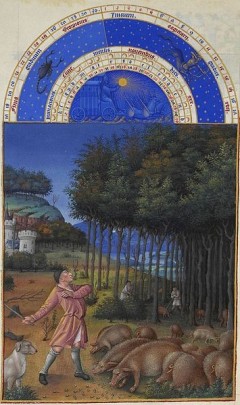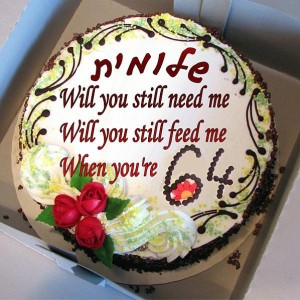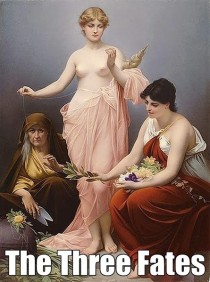November
Happy Birthday, Blog 11 11 13
Back in the early 1990's I started a novel. I've written all my life and all my life I dreamed of being a novelist. One should see the stack of hand typed and unfinished manuscripts up in the attic.
This one was different. It was not written, scribbled, during stolen moments and in a fit of romantic illusion. Well, not completely in romantic illusion. As a stay-at-home Dad, I had the time. I
even had the technology. Thank you, IBM. I could afford to make a business-like attempt.
Writing was and is my Love. I made a business-like attempt to make love to my lover. And, like loving a lover, it became an agony and an ecstasy. It became the 12 Labors of Hercules. Writing that
novel using that damnable keyboard brought me into the 21st century. I won't bore you with the torture that 'learning curve' inflicted upon me. Thank you, KDP.
Then the thing sat, with the others, on a shelf. For years it sat. My son learned of it at some time. His bullying over more years finally got me moving – got the manuscript off the shelf. A whole
new can of Hell-spawn worms opened up. Thank you, son.
Well, said all the pundits – all the 'indies' – all the writer's magazines – an author must have a website if he or she has a book.
A new torturous 'learning curve' opened its great sulfurous maw.
So, I joined all the online groups. I studied all the experiences of other's. I studied everyone's site and Facebook page. Get your website – write your blog – all will be well... they said.
For good or ill, the best advice I found said to let your website be your business card. Let it show your work. That's primarily what I did. It went on line in November of 2012.
Step one.
Step two – the blog.
Content. Content. Content.
There exist nearly as many approaches to blogging as there are blogs. For writers they tend toward fewer. Some experiment with the writing art. A good many rant. More spam the author's work. Many
showcase the authors' various talents. Most seem to talk about what it's like to be a writer.
I had a hard time embracing any of these completely. It was scary even to try. These guys, most of them, were very good. I was jealous. I envied. I had no confidence. It is a brave act opening up
your innermost self to the gaze (and judgment) of others. To open up a vein and bleed your soul onto a page.
I opted for writing an eclectic blog. I opted to cast my writing fate to the wind. No assignments. No deadlines. No theme.
Scary.
My brother pooh-poohed my fear. Hey, bro, he said. You were born to blog. It's what you've been doing all your life. Well, we'll see. Thank you, Larry.
Content. Content. Content.
My first blog post went online about a week later. Some people actually read the thing. Thank you, gentle readers.
My latest review posted to amazon.com:
5.0 out of 5 stars The Texas frontier during the war, November 22, 2013
By
joost vink - See all my reviews
This review is from: Sideshow at Honey Creek (Paperback)
This is the first western I've ever read that has no cowboys in it. This tale is based on true events, and it is one of frontier farmers. The stage is that of the fringes of the civil war stretching out over Texas. To me it is a startling encounter with the farmers' way of life and with their view on native Americans. The main characteristic of this book is authenticity. The details in the story are very instructive. I learned a lot of words and expressions I never read in, lets say, a Wilbur Smith or a Tom Clancy story. I learned about different horses, and about loading a navy revolver. Things John Wayne probably never knew about. Most shockingly, while reading I was forced to understand the harshness of life on the Texas frontier, and why there was so much hatred towards native Americans. Yet, at the same time, the author shows that they are just like other people, caught up in a very unfortunate situation: that Sideshow at Honey Creek.
High-story-cal Lying 11/21/13
Historical fiction. I know it when I read it. I know it when I write it. Don't I?
I know what 'history' is. I think?
Surely, it is the 'facts' of our yesterdays. Facts we can (often) agree upon – usually – maybe. Someone built a structure there. On that day a man (or woman) died. Warriors battled that day.
So-and-so wrote a document and we have it in our museum. You know – all that stuff.
We have the baggage that goes with it. The facts slanted by the victors – or losers. The endless debates of historical forces or historical prerogatives; nature or nurture, fate or free will, gods or
accidents, capitalists or Marxists. On and on.
For me, however, history is biography. History fascinates me because people make history. They make the wars and fight them. They build the ancient structures. They scratch in the dirt to provide for
their families. They live and love and hope and dream. And, thank the gods, some of them record all of these events however inadequately.
Some tell lies about history. They tell stories about those dry cold lists and drippy hot debates. They create historical fictions. And, characters – people not real or composites based on people
once existing – with all their foibles and passions their fates or destinies.
I write those. I read those.
"Writing historical fiction is a legitimate use of Multiple Personality disorder."
― Peggy Ullman Bell
Well, I certainly know that difference between the 'personalities' I create are, in fact, created. I know they are not me even if I work out personal angst using them. That said, I also know my historical fictions are a way to debate with many of the 'wise' and the 'wisdoms' inflicting themselves upon my life on a day by day basis.
The chief of these 'wisdoms' that the 'wise' give are the two forces 'fate' and 'destiny'. Is there a difference between the two? Do these forces condemn us to a life of no choice? Can a person's
choices alter his or her fate? For that matter, is the freedom of choice only an illusion?
"Character is fate."
― Sylvia Plath
"Destiny is what you are supposed to do in life. Fate is what kicks you in the ass to make you do it."
― Henry Miller
Most of the time in the personal history of my own life I cast my fate to the wind. I allow events to sweep me up and take me whether... In that same history, I met folks that fight their fate to make their own destiny. With more or less success, I might add. I've had more or less success in my own life without much of that same struggle. I guess, then, that my destiny became where the fate of my life blew me.
I put that the same finds itself in the histories and the historical fictions I read and love.
To me there are two immediate examples, the Sharpe series and the Saxon series of Bernard Cornwell. Both main characters are 'fated' to be born in a time and place of epic upheaval. Both make their
struggle with 'destiny'. Sharpe fights against his fate to make his own destiny. Uhtred fights for his fated existence in Alfred's court and, at least so far, his personally chosen destiny remains
elusive. Fate seems to suck him back in.
In my fictions, I have characters of both of those fate/destiny archetypes. I love both types of individuals – for they become more than characters as they grow in my imagination – they 'become'
living things that do much of the writing for me. From them come the conflict and drama in my stories as fate thrusts itself upon them and destiny plays out in their story(s) and their struggles.
Furthermore, history and legend have the same goal; to depict eternal man beneath momentary man."
― Victor Hugo, Ninety-Three
'Tis my characters fate – as it is our fate – to come into the world as it is found. It is their destiny as it is our destiny to love and hope. To want. To act. To fight. To know life. To look back at life and to know that life was lived. All of these, I think, are 'universals' of human kind no matter the place and time of their creation.
Maybe in another post I can explore how 'time' plays upon character in historical fiction. How when a character lives effects the making of the characters destiny. Is the ancient effectively
different from the modern character? Does the ancient love, hope, want, act, and fight differently from the modern? Can fate change the nature of the struggle for a character's destiny if a
character's tools are stone or steam or data?
Remembering First Love 11/26/13
We all were so glorious back then. All of us bursting forth into the world with the immortal omniscience of youth. What fine figures we cut, long hair flowing, flying in the face of convention and authority, protesting a world we did not make. All our days were heat and passion and discovery. It was a time – it was the time – for my first real love.
And, in its way, it was a time of illusion.
Martha. I remember her eyes. They looked in at my soul. I think she wondered if I was real. She was a senior in high school. I, at twenty, was the older man in her life.
I remember the auburn glow in her brunette hair.
I remember her tall. I remember her being awkward. Much allure in that for I was awkward. I remember her shy. Allure in that too for I was shy.
Martha was a proper, upper middleclass, almost shiny clean, and so very new to the world. Me, a scruffy hippie already becoming jaded to the world's harshness, she swept me up and swept me away. She
became my poetry.
I remember most of those folks I ran with. Romantics all. Bearing the crosses of out passions and crusades, playing guitars to the girls in the dark, and certainly writing poetry. Poetry of love and
want and hunger. Reams of it.
Martha got more than her fair share. I imaged her face and the warmth of her touch. The words poured forth.
I knew she was going off to college. A dangerous thing for a boy and his first love. I bought her a ring. Only a promise ring. A promise that she would remember me – that's what the poem said.
It was a dinky little thing and it took every dime I could scrape together. If one shined a flashlight on it and looked hard at it, one might see the chip of diamond. Sad really but it was to have
her promise to remember me. That was what the poem said.
Martha left for college with that sad little golden band, a stack of my poetry, and that promise to remember me.
I knew something about Martha throughout our relationship that I didn't really mark so lost was I in all my passion and rhyme. Underneath all the entertainment, she enjoyed by the attentions of an
'older man', Martha was a fairly levelheaded girl with a dose of good sense. Why didn't I mark that?
"He thought her beautiful, believed her impeccably wise; dreamed of her, wrote poems to her, which, ignoring the subject, she corrected in red
ink."
― Virginia Woolf, Mrs. Dalloway
Very quickly, her letters stopped coming. A matter of a few weeks. The last letter mentioned a 'man' she met – just a friend – just a college junior. In the middle of the second month of college, a package came from her zip code. A little box filled with wadded newspaper and nothing else. Wadded newspaper – I didn't get it. Was something forgotten?
I began to gather the wads of paper, you know, for throwing away, when I caught the glitter of something falling to the earth. (Irony.) That stupid thing of promise with its microscopic twinkle of
diamond. No note. No nothing.
I think I did something dramatic, something maudlin, with that ring. Maybe I threw it in the ocean or in some vacant lot putting all my angry heartbreak in the gesture. I can't remember.
I found out later that she married that guy. The first one to give her some attention in new world of adulthood that opened up for her.
I wondered if he wrote her poetry.
For years, I carried that heartbreak. For years, all women were measured against my vision of Martha. We were Romantics then – and young.
"This was the boy I loved. A little bit messy. A little bit ruined. A beautiful disaster. Just like me."
― Michelle Hodkin, The Evolution of Mara Dyer
Well, we survive. Most of us do, anyway. I healed. No longer that Romantic or that youth but I survived. The memories faded, the glorious memories. Finally even the more realistic ones. Came the time when the thought of Martha did not rise at all.
There are things I hate about growing up and growing old. I hate it that memories too often are seen for what they are and no longer what they seemed. The reality is that my poetry was crap and now
I'm glad I've lost it. The reality is that I was a hopeless dreamer with no prospects – and that it did, in the end, matter.
I hate that clarity that comes from age gives a different picture from the one's I first carried. I was not as glorious a figure as I felt myself. Poor Martha, cute enough if a touch scrawny, was not
the beauty portrayed in my poetry. Hell, now I question how much of that auburn hair came from a bottle.
"Love never dies a natural death. It dies because we don't know how to replenish its source. It dies of blindness and errors and betrayals. It dies of illness and
wounds; it dies of weariness, of witherings, of tarnishings."
― Anaïs Nin
I wonder if that boy she married wrote her poetry.






